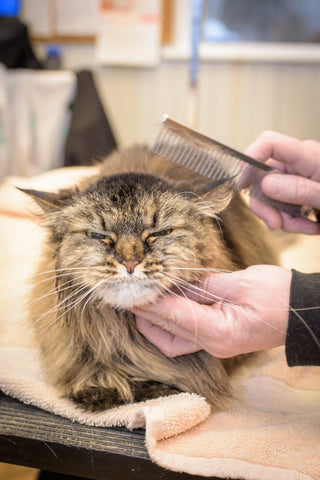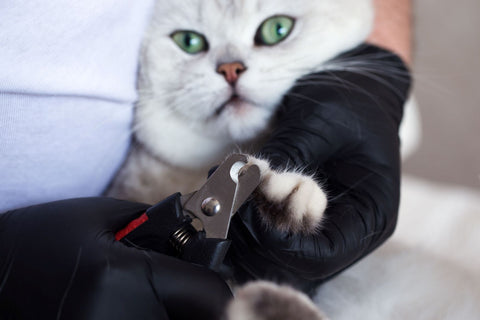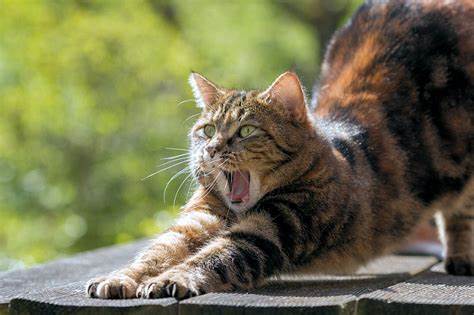As cats age, their grooming needs change, and they may require extra care to keep them clean and comfortable. Grooming plays a crucial role in maintaining a senior cat's overall well-being, and it's essential to adapt your grooming routine to their specific needs. In this comprehensive guide, we will explore the special considerations and tips for grooming senior cats, helping you ensure their golden years are as comfortable and healthy as possible.
1.Understanding the Grooming Needs of Senior Cats
Senior cats, typically considered to be those aged seven and older, experience several physical and behavioral changes that affect their grooming requirements:
Reduced Mobility: Older cats may become less flexible and agile. They may have arthritis or other mobility issues, making it challenging for them to groom hard-to-reach areas.
Decreased Grooming Efficiency: Senior cats may become less efficient at self-grooming due to reduced energy, muscle mass, or dental problems. This can result in a less effective cleaning of their fur and skin.
Dental Issues: Dental problems are common in older cats, which can affect their ability to chew, leading to food debris stuck in their whiskers and fur.
Weight Loss and Muscle Wasting: Weight loss, often associated with aging, can lead to prominent bones, and muscle wasting can cause changes in a cat's skin and coat condition.
Skin Sensitivity: Aging skin can become more sensitive, prone to dryness, and vulnerable to irritations or infections.
Given these changes, grooming a senior cat requires a gentle and tailored approach. Here are some tips to help you adapt your grooming routine accordingly.
2.Tips for Grooming Senior Cats
2.1.Regular Brushing
Brushing is essential for senior cats, as it helps remove loose fur, prevents matting, and stimulates circulation. Opt for soft-bristle brushes or grooming mitts that are gentle on sensitive skin.
Frequency: Brush your senior cat regularly, at least a few times a week, to keep their coat in good condition.
2.2. Special Attention to Matting
Senior cats are more prone to matting due to decreased grooming efficiency. Mats can be painful and contribute to skin issues. Carefully work through mats with a mat splitter or mat rake, or consider a professional groomer's assistance for severe cases.
2.3. Dental Hygiene
Regularly check your senior cat's mouth and teeth. Dental problems can lead to food debris getting stuck in the fur around the mouth, which needs to be cleaned to avoid skin issues.
2.4. Cat-Friendly Shampoo
If you need to bathe your senior cat, use a cat-friendly shampoo that is gentle on their skin. Make sure the water is warm but not hot. Always handle your cat carefully during the bath to minimize stress.
2.5. Paw and Nail Care
Inspect and trim your cat's nails regularly to prevent overgrowth. Senior cats may not wear down their nails as efficiently due to reduced activity.
2.6. Skin and Coat Inspection
While grooming, take the time to inspect your cat's skin and coat for any abnormalities, such as lumps, bumps, or changes in skin condition. Report any concerns to your veterinarian.
2.7. Maintain a Calm Environment
Senior cats can be more easily stressed. Ensure your grooming sessions take place in a quiet, comfortable, and familiar space. Use treats and soothing words to make the experience positive.
2.8. Professional Grooming
If your senior cat's grooming needs become too challenging or if they develop severe matting or skin problems, consider seeking the help of a professional groomer or your veterinarian.
2.9. Be Mindful of Weight
Seniors may experience weight loss and muscle wasting, which can cause pressure sores. Use a soft, cushioned surface for grooming to protect their fragile skin.
2.10. Adapt to Their Needs
Always adapt your grooming routine to your cat's specific needs. Pay attention to their comfort level during grooming and adjust your techniques accordingly.

Final Thoughts
Grooming a senior cat requires patience, sensitivity, and a deep understanding of their changing needs. By providing regular care and adapting your grooming routine to these special considerations, you can help ensure that your senior feline companion remains comfortable, clean, and happy throughout their golden years. Additionally, consult with your veterinarian for specific guidance on grooming practices tailored to your cat's individual health and needs.
